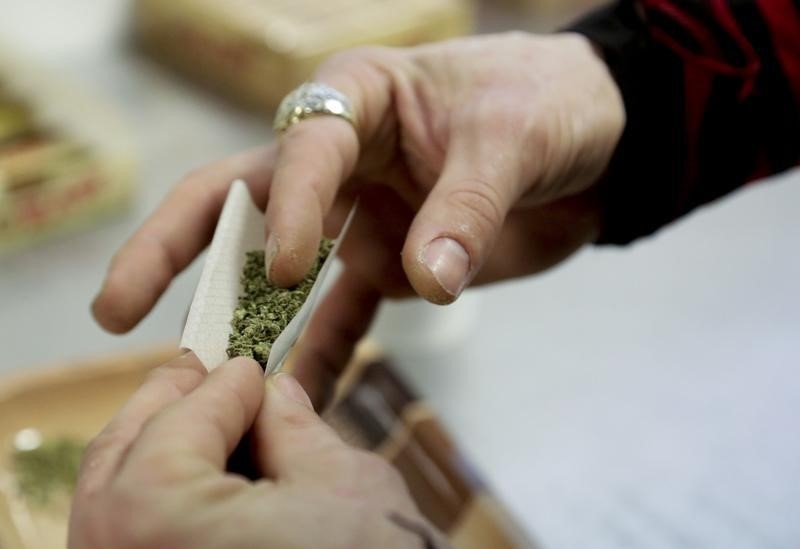By Steve Quinn
JUNEAU, Alaska (Reuters) - Smoking, growing and owning small amounts of marijuana became legal in Alaska on Tuesday as a growing decriminalization movement reached the United States' northwest frontier.
Alaska, which narrowly passed the measure in November, followed Colorado and Washington among states allowing recreational use, reflecting a rapidly shifting legal landscape for the drug.
It remains illegal, however, under federal law.
In the District of Columbia, Mayor Muriel Bowser said on Tuesday the U.S. capital would go ahead with legalized possession of small amounts of marijuana and pot plants despite opposition from Congress. Voters overwhelmingly approved legalizing pot last year, but its sale is still banned.
Oregon voters approved a similar measure in November, but the drug does not become legal until July. In Maryland, the state legislature began hearings on Tuesday on a measure to legalize marijuana.
In Alaska, anyone aged 21 or older can possess up to an ounce (28.3 grams) of marijuana and can grow up to six plants, three of which can be flowering.
Smoking in public and buying and selling the drug remains illegal, but private exchanges are allowed if money is not involved.
President Barack Obama's Department of Justice has allowed the experiments to proceed, saying it would look to prosecute a narrower range of marijuana-related crimes, such as sales to children.
But that could change if a more conservative president is elected in 2016, when Alaska's first marijuana shops are likely to open.
Supporters of the measure say it reflects a sense of personal freedom that resonates with residents of Alaska, a state with a libertarian streak. They also say legal sales will generate income and jobs.
"Alaska now has some of the most sensible marijuana laws in the nation," Dr. Tim Hinterberger, chairman of the Campaign to Regulate Marijuana Like Alcohol, said in a statement.
The state's alcohol regulatory board, which is set to meet on Tuesday, and other officials must still fill gaps in the legislation, such as a definition of the public places where people cannot light up.
State regulators are drafting rules covering the taxation and sale of marijuana and which must be adopted by Nov. 24. Applications for the first business licenses will not be accepted until February 2016.

Police have released regular updates on how they will enforce the law.